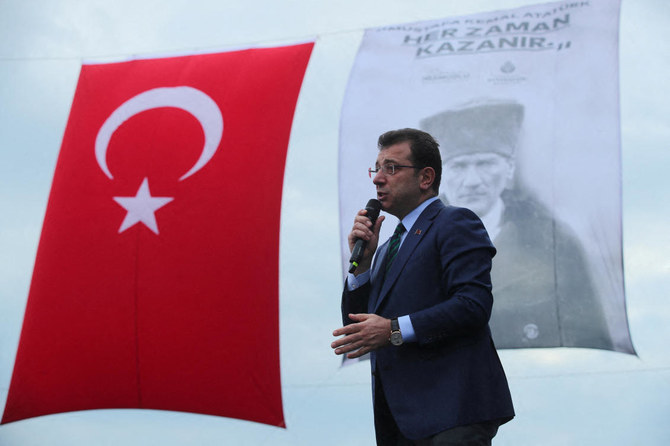In the lead-up to the crucial municipal elections in Istanbul on March 31, disunity among Turkiye’s opposition parties is reportedly boosting President Tayyip Erdogan’s prospects of reclaiming control of the city, according to pollsters. Erdogan, who secured victory in last year’s presidential vote, aims to overturn the defeat suffered by his AK Party five years ago when the secularist CHP, led by Ekrem Imamoglu, won control of Istanbul.
Imamoglu, long considered a potential leader of the main opposition CHP, faces a tough challenge as the alliance that propelled him to victory in 2019 has collapsed. His nationalist and pro-Kurdish allies are now fielding their own candidates, further fragmenting the opposition landscape.
Recent polls indicate a close race, with MAK showing 41.5 percent support for Imamoglu, just 1.5 points ahead of AKP candidate Murat Kurum. However, another poll by Murat Gezici suggests Kurum leads with 44.1 percent support compared to Imamoglu’s 43.5 percent.
Ozer Sencar, chairman of Metropoll, emphasized the significance of the Istanbul election for national politics, stating, “If Ekrem Imamoglu wins the election in Istanbul… he will become the president of Turkiye in 2028.”
Imamoglu’s challenges are further compounded by the decision of the pro-Kurdish DEM Party and the Turkish nationalist IYI Party to field their own candidates, eroding the support he had in 2019. Discord within the CHP and dissatisfaction with the choice of election candidates add to the opposition’s fragmentation.
Election campaigning focuses on key issues such as traffic problems in the city of 16 million and the need for urban transformation, considering earthquake risks in the region. Imamoglu accuses the central government of hampering service delivery in Istanbul since 2019.
President Erdogan has seized on the opposition’s difficulties in his speeches during campaigning, asserting that the CHP’s political exhaustion remains unchanged. The outcome of the Istanbul elections is crucial, not only for the city’s political landscape but also for the potential future leadership of Turkiye.
Source: Reuters



